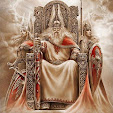Between 22 and 25 Mayo 2014 elections to the European Parliament will be held in all member states of the European Union (EU). The date was decided unanimously by the Council of the European Union. It will be the eighth Europe-wide election to the European Parliament since the first direct elections in 1979.
The 2014 elections will be held in late May instead or early June as had been the case with previous European Parlament elections. The elections were brought forward in order to provide more time for the election of a president of the European Commision, and because they would otherwise have coincided with the Pentecost weekend wich falls during school holidays in many member states.
The Lisbon Treaty, which entered into force on 1 December 2009, provides that the European Parliament shall elect the president of the European Commision on the basis of a proposal made by the European Council, taking into account the European elections (article 17, paragraph 7 of the Treaty on European Union). This provision will apply for the first time for the 2014 elections.
Nevertheless, major EU politicians such as European Council president Herman Van Rompuy, German Chancellor Angela Merkel, and former Commission president Jacques Delors have questioned the aspiration of European political parties to link the presidency of the European Commission with the result of the European elections and insist that the future Commission president has to suit Member States expectations first.
No pan-European opinion polls are carried out, however several institutes have compiled predictions of the outcome of the elections based on national polls. Finally, the article 14 of the Treaty of Lisbon lays down that "The European Parliament shall be composed of representatives of the Union´s citizens. They shall not exceed serven hundred and fifty in number, plus the President. Representation of citizens shall be degressively proportional, with a minimun threshold of six members per Member State. No Member State shall be allocated more than ninety-six seats."


























